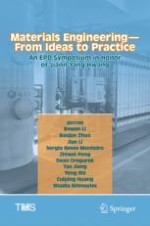2021 | OriginalPaper | Buchkapitel
COD Removal from Electroplating Degreasing Wastewater by UV/H2O2 Process
verfasst von : Jianjun Liu, Zhichao Chen, Lili Xi, Jiann-Yang Hwang, Yong Shi
Erschienen in: Materials Engineering—From Ideas to Practice: An EPD Symposium in Honor of Jiann-Yang Hwang
Aktivieren Sie unsere intelligente Suche, um passende Fachinhalte oder Patente zu finden.
Wählen Sie Textabschnitte aus um mit Künstlicher Intelligenz passenden Patente zu finden. powered by
Markieren Sie Textabschnitte, um KI-gestützt weitere passende Inhalte zu finden. powered by
